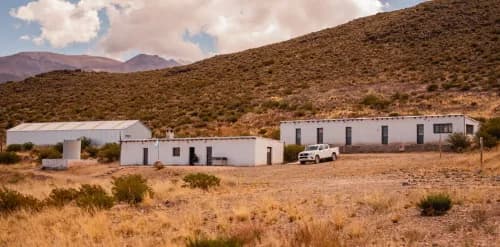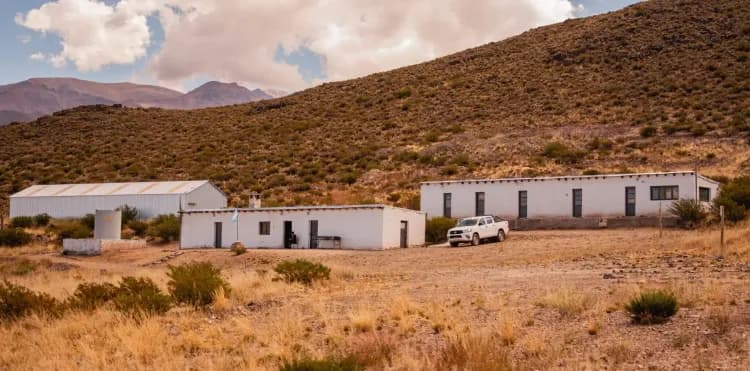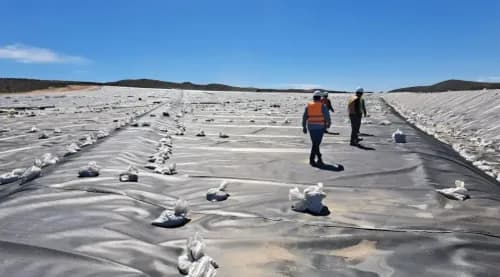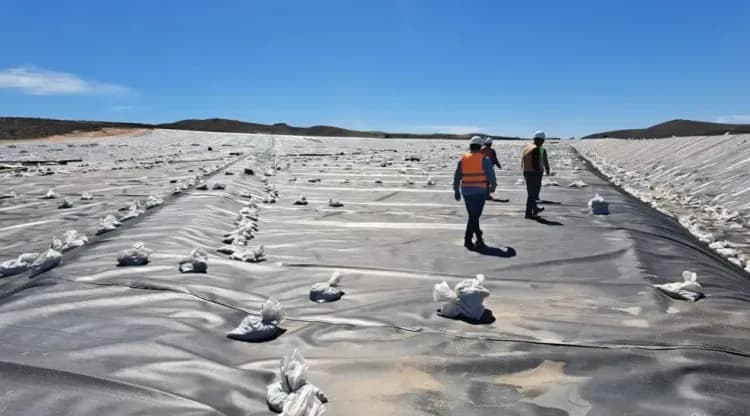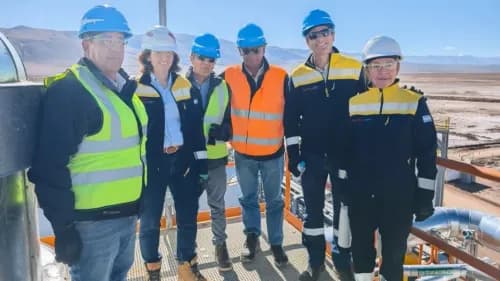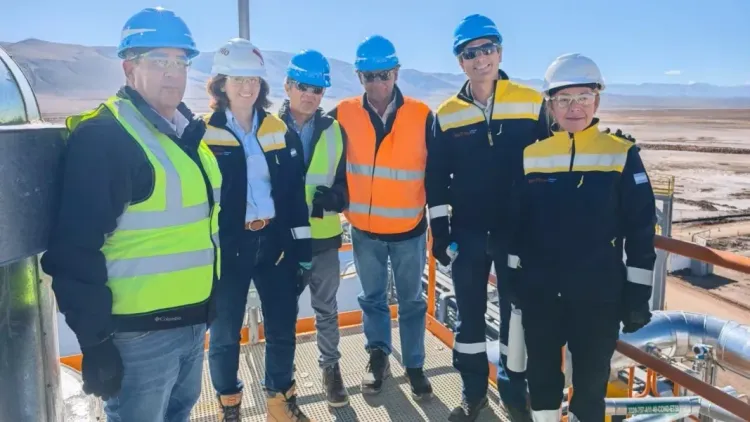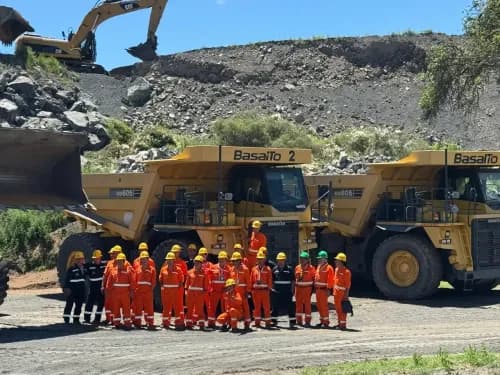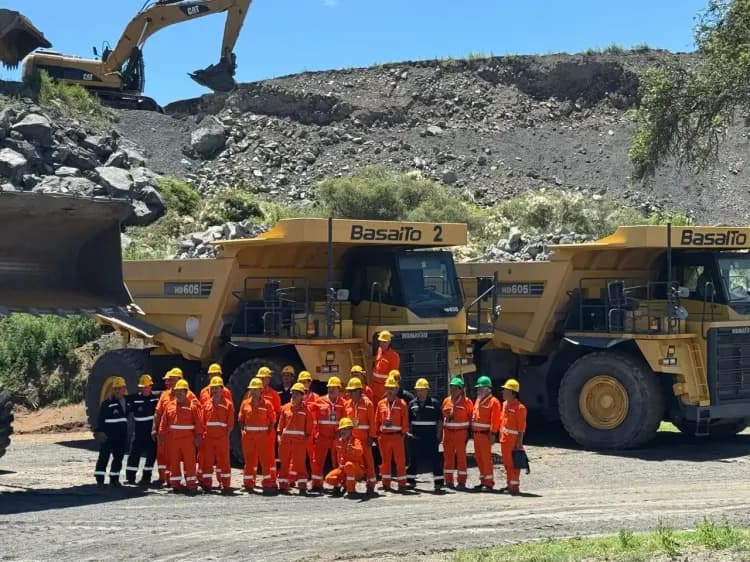In a highly dynamic lithium market environment, the interest in accelerating the production of brine projects and reducing their environmental footprint is driving the emergence of new extraction technologies. We spoke with Amanda Hall, CEO of the technology firm Summit Nanotech, about this and other inflection points the industry is experiencing today: “Unlocking lithium resources quickly, but with thoughtful and sustainable development, is imperative.”
By Agustín López Muñoz
Communications Manager, Panorama Minero
How do you analyze the global situation related to lithium in both its production and the segment linked to battery manufacturing and the electrification of transportation? Do you think there will be a market rebound, or are we entering a more realistic phase compared to the price surge in previous years?
I still see a very positive outlook for lithium as it is the key element in any lithium-ion battery, whether used for electric vehicles, electronics, or stationary storage. The United Nations Conference on Trade and Development (UNCTAD) predicts that lithium demand could increase by over 1500% by 2050 to meet global net-zero emission targets. Based on these calculations and what I observe in the market, I project that the demand for lithium will be present for a long time.
It is true that there has been a rebalancing, and I think that is good for everyone who depends on prices to develop their projects or foresee the demand for electric vehicle production. When I started Summit Nanotech, the price was as low as $6,000 per ton and then went up to $80,000. From an economic perspective, we can generate large margins with our technology, even at the current lithium price. This was a key factor when we developed our innovation, called denaLi. The goal was to create the best technology with the best OPEX, a lesson I took from my experience in the oil and gas industry.
What kind of actions is Summit Nanotech undertaking in Argentina and Chile specifically? Are there plans to expand operations to other countries or regions in the future?
The lithium industry plays a central role in the energy transition. Unlocking lithium resources quickly, but with thoughtful and sustainable development, is imperative to bringing the maximum amount of lithium product to the global market. Our Direct Lithium Extraction (DLE) technology denaLi™ can facilitate this and produce lithium carbonate equivalent faster and cleaner. As part of our productive dynamic, we can recover 96% of the lithium, recycle 95% of the water we use, and produce fewer emissions than traditional methods. BloombergNEF predicts that lithium production using DLE technology will reach 526 kt by 2030. This supports the development of a robust supply chain that enables the production and adoption of electric vehicles, an activity that has a significant environmental impact.
Regarding our actions in Chile, we have our DLE facility in Santiago with offices for our South American team, where we are piloting brines from customer drilling programs to demonstrate the effectiveness of our process. This location is a nerve center for clients and helps us scale our technology to a commercial-sized unit. We have signed a collaboration agreement with the Universidad del Desarrollo (UDD) to accelerate research and development in the lithium industry in areas such as reinjection and to support the training and employment of local professionals. We have three joint venture agreements in Chile with junior producers. We are suppliers of direct lithium extraction technology and want to continue participating in projects as management partners throughout the process.
In Argentina, Summit Nanotech is working alongside Power Minerals using denaLi™ direct lithium extraction technology in the Incahuasi project, and we are establishing a local presence and office to be closer to future projects. We are about to sign collaboration agreements with universities in Salta to conduct research and professional training, and we are creating a corporate responsibility program rooted in education, starting with younger generations so they understand and can find innovative solutions to current environmental problems. It is important that they feel responsible for initiating change and have the tools to implement it. We need to create awareness and a change in perception.
Our goal for Argentina is to deploy our DLE technology in a commercial project. We are currently focused on Argentina and Chile, but we have a team of professionals evaluating other assets, even in North America, to see if they fit well with our technology and if the economics of these projects make sense.
What are your considerations regarding certain debate topics in Argentine politics such as the Large Investment Incentive Regime (RIGI) and how do you observe the country's competitiveness in the mining sector? Do you believe regulatory changes are necessary to facilitate a more favorable environment for lithium investment?
Regarding the RIGI, which has been a recent hot topic in Argentina, we see it as another signal that the government aims to make Argentina attractive to foreign investors, which will help boost the economy and create jobs. We have heard from major climate technology funds that they seek more guarantees before making large-scale investments in Argentina, and we believe this project is a good start to mitigate the inherent risks involved in mobilizing large capital in the lithium industry.
Specifically in Argentina, as Canadian investors, we believe that a change in foreign exchange legislation is necessary to eliminate this barrier and provide peace of mind and security, so that when investors make their profits, they can use that money in any country they choose. .
How does energy infrastructure, transportation, logistics, and human resources affect your business model in Argentina? Do you think the NOA region is prepared for more ongoing projects?
One of the major challenges in northern Argentina is the lack of infrastructure (such as electricity, roads, and logistical issues) where projects are located, significantly impacting operational costs. Another critical issue is the intense competition for skilled professionals, with high turnover rates. Therefore, we need to invest money and time in training personnel.
Despite these obvious challenges, I see a prosperous future in the mining sector in the region. Provincial governments are pro-mining and focused on creating legal stability for corporations, while the national government is pro-investment, aiming to create more favorable conditions to stabilize the macroeconomy. This bodes well for Summit Nanotech to continue doing business in the country. With this foundation, all other challenges can be addressed.
What is the interaction with mining companies when it comes to improving the technology offered? How do you work with them in the sophistication of each innovation linked to lithium production?
We are constantly optimizing our technology to meet the needs of mining companies. The assets are unique, the compositions of the brines are unique, and our technology has the capability to adapt to that specificity and deliver lithium recovery rates higher than 95% with low fresh water requirements. This is our differential, and with it, we believe it is possible to make a significant contribution to a sector that needs fast and effective solutions to consolidate itself in a scenario tending toward energy transition.
We work in collaboration with companies, as well as with local communities and universities to conduct research and development, in order to offer the industry the most sophisticated and sustainable technology that is best for all stakeholders. Our technology is a custom development that can adapt to a wide variety of brines. We do not use any chemicals in the concentration process, require little energy, and produce low greenhouse gas emissions—an innovation in lithium mining that is well received by companies and communities.
In parallel with aspects related to sustainable production, environmental care, and resource development, another focus of the mining context is the role of women and gender equity. As the CEO and head of an international company, how do you see the progress made in the sector?
I am seeing more diversity in mining and increasingly more women in leadership positions. More than 50% of executives at Summit Nanotech are women, and we strongly believe in diversity. That is, we value the narrative and contributions of all employees and their ability to influence not only our technology but the lithium industry as a whole. We are excited to be part of Women in Mining Argentina and to continue being a beacon of what is possible regarding roles for women in the industry.
The industry offers many professional opportunities for women, whether in geosciences, as is my background, or in engineering, chemistry, data analysis, and much more. As we continue to see more diverse gender representation, it is our duty to support others on the path to demonstrate the power that all voices have. My vision is for all of us to work together globally to solve the enormous challenges ahead, such as mitigating climate change. I hope that there will continue to be equitable representation of all people, regardless of gender.











